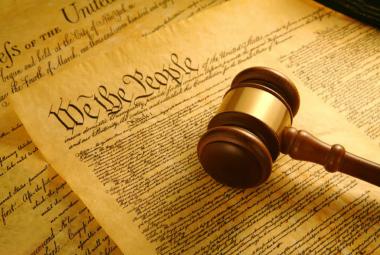The UN gave Palestine the status of a non-member state. The only thing this will do is to convince people even more that they are following a clever and successful strategy. They aren’t.
Twenty-four years ago, almost to the day, in 1988, I stood in a large hall in Algeria and saw Yasir Arafat declare the independence of a Palestinian state. And that was forty-one years, almost to the day, after the UN offered a Palestinian state in 1947. Twelve years ago Israel and the United States officially offered a Palestinian state as part of a compromise deal at the Camp David summit of 2000.
Arguably, despite all their errors, the Palestinian movement has made progress since those events, though it is not very impressive progress. Yet in real terms there is no real Palestinian state; the movement is more deeply divided than at any time in its history; and, the people aren’t doing very well.
Now the UN gives Palestine the status of a non-member state. The only thing this will do is to convince people even more that they are following a clever and successful strategy. They aren’t.
Perhaps in 24 or 41 years there will actually be a Palestinian state.
How Should We React?
There are two ways to respond to the General Assembly’s vote to so designate a state of Palestine. One of them is outrage at the absurdity of how the international system behaves. The other would be to dismiss the gesture as meaningless, even more than that, as something that will even further delay the day that a real, functioning state comes into existence.
Certainly, there are threats and dangers. For example, the use by Palestine of the International Court. Or one could look at this as another step on the road to a final, I mean comprehensive, solution to the issue. Yet over all, I’ll go for disgusted and cynical as the most accurate responses.
A Short History of Palestinian “Peace Talks”
Let’s start with disgusted. In 1993, the PLO made an agreement, the very basis of which was that a Palestinian state would only come into existence as a result of a deal made with Israel. Instead, the Palestinian side refused to make such a compromise and broke its commitments repeatedly. The ultimate result was Yasir Arafat’s refusal to accept a Palestinian state with its capital in the eastern part of Jerusalem—both at the 2000 Camp David meeting and a few months later when President Bill Clinton made a better, and final, offer.
I have just this minute come from an interview with a very nice journalist who asked me, “But doesn’t Israel want everything and offer nothing in return?” What was most impressive is the fact that he had no personal hostility or any political agenda. (You’d understand if I identified the person and his newspaper but I’m not going to do that.) This conclusion was simply taken as fact. He was astonished to hear that another perspective even existed.
My first response was to point down the street two corners to the place where a bus was blown up in 1995 and right next to it where a suicide bomber had killed about a dozen pedestrians around the same time. This was the result of risks and concessions that Israel had voluntarily undertaken in trying to achieve peace. And, I added, it was possible to supply a long list of other examples.
So despite Israel taking risks and making concessions, the Palestinian Authority rejected peace. Today the same group is recognized by the UN as a regime governing a state. Moreover, this is a body that is relentlessly begging Hamas, a group that openly calls for genocide against both Israel and Jews, to join it.
Hamas, of course, ran for office without accepting the Oslo agreement (a violation of it) and then seized power in a coup. Since then it has rained rockets and missiles on Israel. In other words, although it is unlikely to happen, in a few months Hamas might become part of the official government of this non-member state of the UN.
Yet complaining about the unfairness of international behavior or the treatment of Israel, like complaining about one’s personal fate, doesn’t get you anywhere. It is cathartic to do so but then one must move on to more productive responses.
Does the UN Vote Matter?
The second issue is whether it will really matter. Yes it entails symbolism, yes it will convince the Palestinians they are getting something when the course they have followed ensures they get pretty close to nothing. But, to use a Biblical phrase, “it availeth them not.” On the contrary, to coin a phrase, this move “counter-matters”; that is, it is a substitute for productive action that actually detracts from the real goal.
To the extent that “President” Mahmoud Abbas convinced West Bank Palestinians that they have achieved some great victory, it takes off the pressure for violent action or support for Hamas there. Of course, there is no popular pressure for a negotiated solution. Indeed, I’m not aware of a single Palestinian Authority official who has even claimed for cosmetic purposes that the reason for this move at the UN is to press Israel to compromise on a deal.
Its purpose is to make Abbas’s regime look good and be a step forward toward total victory, a Palestinian state unbound by commitments that could be used as a base for wiping out Israel. But that doesn’t mean it will work. The residents of the Palestinian Authority are still exactly where they were before the UN vote.You should also understand that in Israel there are no illusions about this whole charade. Few think that a real deal is possible with either of the current Palestinian leaderships—those who do have already written op-ed pieces in the New York Times—and the UN action will make the public even more opposed to concessions.
Incidentally, people on both sides in other countries make a serious mistake in assessing Israel. Its enemies think it evil; many of its friends think it stupid. Both are wrong. There are real constraints in the international system, including the current government of the United States.
Symbolism Over Substance
The solution is not to rail against this fate verbally but to assess the best course in the context of these conditions. There are many who don’t comprehend the implications of this situation. They either think Israel should endlessly make concessions or that it should win total victory by ignoring the surrounding reality. It’s amusing to see those of various political hues who are thousands of miles away pulling theories from their heads that have nothing to do with the actual events.
At any rate, the UN General Assembly’s action neither contributes to peace nor is a just decision. Nevertheless, once again we have a case of symbolism over substance. This is the same General Assembly that received Yasir Arafat as a man of peace in 1974 at the very moment he was masterminding terrorist attacks on Israeli civilians and the following year voted for a resolution that Zionism was racism. Can one really say things have gotten worse?
During the period since then, Israel has survived and prospered. Its enemies in the Middle East have undergone constant instability and economic stagnation (except for those small in population and large in oil fields).
The supposed springtime of democracy has quickly turned into just another authoritarian era of repression and disastrous policies that ultimately weaken those countries and make their people poor and miserable. What else is new?
Ignoring that history and the contemporary reality, some Western countries are voting for this resolution or abstaining for a variety of reasons: cheap public relations’ gain among Arabs and Muslims; a belief that this will shore up the Palestinian “moderates” against the radicals; or, that it will encourage the non-existent peace process.
The Real Result of the UN Vote
What the vote will do, however, is sink the Palestinian leadership even deeper into an obsession with intransigence in practice and paper victories that mean nothing in the real world. And, yes, that’s what the result of this UN vote will be. And of course no matter what is said publicly about unity between the Fatah-ruled Palestinian Authority and the Hamas-ruled Gaza Strip, there will be no change on that front either.
In 1939, the British offered the Arab states and Palestinian leadership a deal in which they would be handed all of the Palestine mandate as an Arab state if they accepted a few simple conditions, including a ten-year transition period. Despite the pleas of some Arab rulers, the Palestinians said no, believing a German victory would give them everything soon. Almost precisely 65 years ago the UN endorsed the creation of a Palestinian Arab state. The Palestinians said no, believing that the military efforts of themselves and their allies would give them everything soon.
The Palestinians’ leaders have long believed that an intransigent strategy coupled with some outside force—Nazi Germany, the USSR, weaning the West away from Israel—will miraculously grant them total victory. They aren’t going to change course now, but this route leads not forward but in circles.
©2013 GLORIA Center. Do not reprint without permission. All rights reserved, used by permission of the author.






